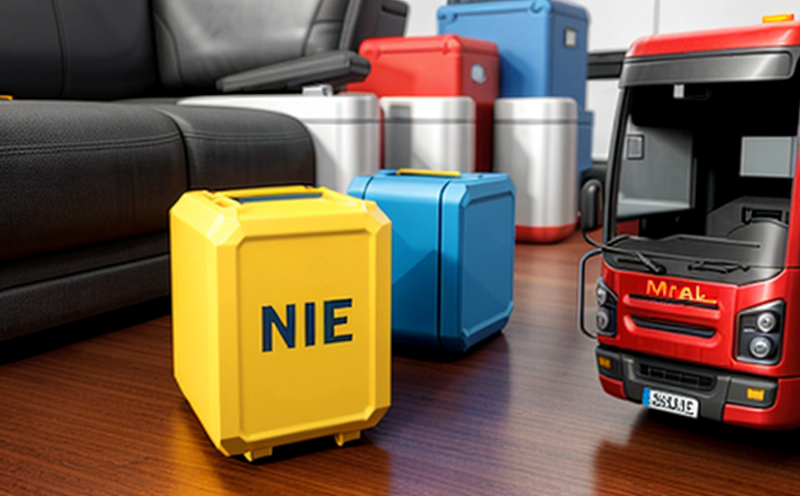Simulating common real-life scenarios that involve mechanical stress on consumer goods
Simulating Real-Life Scenarios The Key to Ensuring Consumer Goods withstanding Mechanical Stress
In todays fast-paced and competitive market, consumer goods manufacturers are under pressure to produce products that meet the high expectations of consumers. However, ensuring the durability and reliability of these products can be a daunting task, especially when it comes to withstanding mechanical stress. This is where simulating real-life scenarios comes into play a laboratory service provided by Eurolab that helps businesses assess the performance of their products under various conditions.
What is Simulating Real-Life Scenarios?
Simulating real-life scenarios involves subjecting consumer goods to controlled and repeated mechanical stress, mimicking the actual usage conditions that the product would experience in real-world applications. This process allows manufacturers to evaluate the products performance, identify potential weaknesses, and make necessary improvements before mass production.
Why is Simulating Real-Life Scenarios Essential for Businesses?
In todays market, consumer goods manufacturers are facing increasing pressure to deliver products that meet specific requirements while reducing costs and improving efficiency. Simulating real-life scenarios provides a cost-effective solution to ensure the quality and reliability of products by
Reducing the risk of product failure By simulating real-life scenarios, businesses can identify potential weaknesses in their products and make necessary improvements before mass production.
Improving product performance Simulating real-life scenarios allows manufacturers to optimize product design, materials, and manufacturing processes, resulting in improved performance and increased customer satisfaction.
Minimizing warranty claims By ensuring that products meet specific requirements, businesses can reduce the likelihood of warranty claims, saving costs and improving brand reputation.
Key Benefits of Using Eurolabs Simulating Real-Life Scenarios Service
Eurolabs simulating real-life scenarios service offers numerous benefits to consumer goods manufacturers, including
Comprehensive testing Our expert team conducts thorough testing, providing detailed reports on product performance under various conditions.
Customized solutions We work closely with clients to develop customized testing programs tailored to their specific needs and requirements.
Timely delivery Our efficient laboratory processes ensure timely delivery of test results, enabling businesses to make informed decisions quickly.
How Does Eurolabs Simulating Real-Life Scenarios Service Work?
Our simulating real-life scenarios service involves a multi-step process
Product evaluation We conduct an initial assessment of the product to identify potential areas of concern.
Test development Our expert team develops customized testing protocols based on the clients specific requirements and industry standards.
Testing The product is subjected to controlled mechanical stress, simulating real-life scenarios in a laboratory setting.
Data analysis We analyze the test data, providing detailed reports on product performance under various conditions.
QA Section
Q What types of products can be tested using Eurolabs simulating real-life scenarios service?
A Our service is suitable for a wide range of consumer goods, including electronics, appliances, furniture, and automotive components.
Q How long does the testing process take?
A The duration of the testing process varies depending on the complexity of the test protocol and the type of product being tested. However, our efficient laboratory processes ensure timely delivery of test results.
Q What kind of data analysis can I expect from Eurolabs simulating real-life scenarios service?
A We provide comprehensive data analysis reports, including detailed summaries of product performance under various conditions, along with recommendations for improvement.
Q Can I customize the testing protocol to meet my specific needs and requirements?
A Yes, our expert team works closely with clients to develop customized testing programs tailored to their specific needs and industry standards.
Conclusion
Simulating real-life scenarios is a crucial step in ensuring that consumer goods can withstand mechanical stress. By leveraging Eurolabs simulating real-life scenarios service, businesses can reduce the risk of product failure, improve product performance, minimize warranty claims, and enhance brand reputation. With our comprehensive testing services, customized solutions, and timely delivery, we provide the ideal solution for companies seeking to ensure the quality and reliability of their products.
Get Started with Eurolabs Simulating Real-Life Scenarios Service
Dont let mechanical stress compromise your products performance. Contact us today to discuss how our simulating real-life scenarios service can benefit your business.
-
Testing the mechanical durability of consumer products under stress conditions
-
Simulating pressure, bending, and stretching to evaluate how products perform under mechanical load
-
Assessing the tensile and compression strength of consumer goods to prevent structural failure
-
Testing for cracks, deformations, and material fatigue under prolonged mechanical stress
-
Evaluating how consumer products react to forces like twisting, pulling, and pushing
-
Simulating real-world mechanical stresses to test product reliability in everyday use
-
Testing for failure points or weakness in critical components of consumer goods under stress
-
Assessing how different materials used in products perform under mechanical loading
-
Evaluating the long-term effects of repeated mechanical stress on product lifespan
-
Testing the ability of consumer products to withstand physical manipulation and heavy use
-
Simulating mechanical stress in environments where products are exposed to varying pressures or forces
-
Testing the mechanical integrity of products designed to withstand extreme use, such as tools or sports equipment
-
Evaluating the failure modes of products when exposed to excessive forces
-
Assessing the performance of locking mechanisms, latches, and other components under mechanical stress
-
Testing for bending or breaking points in products like chairs, tables, and kitchenware
-
Verifying product safety and functionality under mechanical loading conditions
-
Assessing the impact of stress on non-visible components of the product, such as internal wiring
-
Testing for early signs of wear or breakage in products subjected to mechanical forces
-
Ensuring that products meet durability standards when subjected to mechanical challenges




